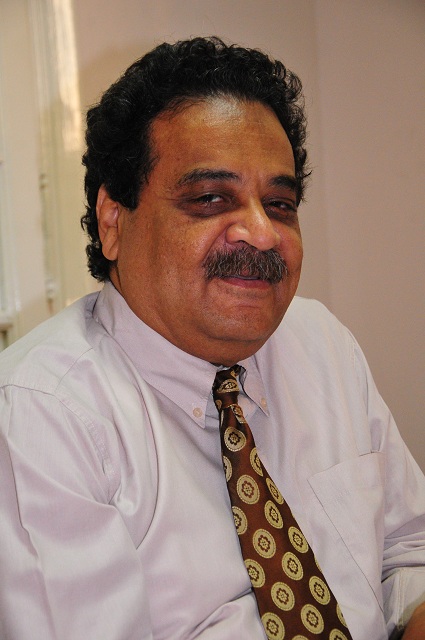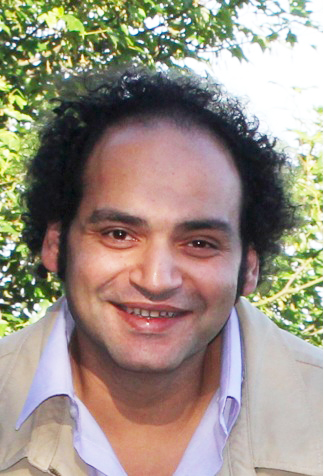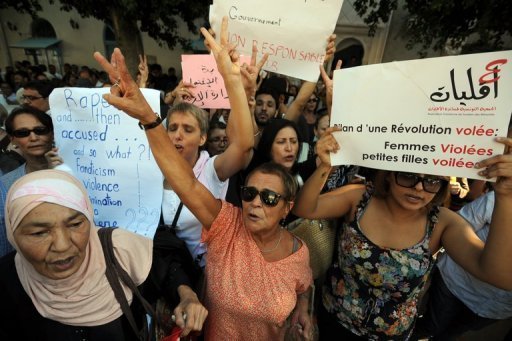 Those believing that the Muslim Brotherhood act according to American interests, as agents of the United States whom have pledged to carry out whatever is dictated to them, are wrong. Personally, I believe that if the Muslim Brotherhood has indeed adopted American policies and positions, it is not due to the Muslim Brotherhood being an agent of the American government.
Those believing that the Muslim Brotherhood act according to American interests, as agents of the United States whom have pledged to carry out whatever is dictated to them, are wrong. Personally, I believe that if the Muslim Brotherhood has indeed adopted American policies and positions, it is not due to the Muslim Brotherhood being an agent of the American government.
This issue has nothing to do with treachery but rather the harmony, or at least intersection, of interest. (And I believe that this was predominately the case during Mubarak’s regime as well.) Perhaps more so than any other actor excluding the Mubarak regime in the Egyptian political arena, the Muslim Brotherhood has adopted American programmes and plans, not only in regards to Egypt but also to the region as a whole.
Locally, the Muslim Brotherhood has adopted a right-wing economic program that is about to harmonise with the IMF’s prognosis that the American government has adopted and attempted to impose through a savage capitalist globalization, whose sharpness Obama has greatly reduced under the influence of the global financial crisis.
Domestically, thanks to its success in democratic elections, the Muslim Brotherhood has presented itself to the United States and the world as the most popular political force and one capable – thanks to its popularity – of ensuring the security and stability of the country without relying solely upon repression and security forces, but rather upon its legitimacy and popular support.
Both Muslim Brotherhood and the United States believe in the veracity of this popular legitimacy and the ability of the Muslim Brotherhood to obtain the majority of the vote in democratic elections.
Regionally, relying upon historical secretarial differences between Sunnis and Shi’as, the Muslim Brotherhood has been able to support a Western strike of Iran, or at least absorb any possible popular reactions to this strike, without causing radical regime changes or unconstrained, uncontrollable unrest.
One possible interpretation of this is that due to the Muslim Brotherhood’s secretarial stance on Iran, it is not opposed to the weakening of this country even if it seems to suggest otherwise. For, any rebuke from Muslim Brotherhood would fall under the framework of containing the possible popular anger that this strike could generate.
Regionally, the support of the Egyptian Muslim Brotherhood for the Syrian Muslim Brotherhood superseded any other considerations that may have prevented Egypt – under a different regime – from supporting the Syrian revolution for fear that the fall of Assad would lead to the break-up of Syria and/or that the weakening of Syria would increase Israel’s weight and role in the region.
The Muslim Brotherhood does not value these considerations because it sees itself as the possible replacement for Assad in Syria. This is the principle – and probably only – thought process that has determined the stance of the Muslim Brotherhood regarding the Syrian revolution.
Conversely, the American government believes that Assad’s removal is the objective even if it were to lead to Islamists inheriting power in Syria just as they did in Tunisia, Egypt, and Libya. Of course, in regards to increasing Israel’s weight in the region, if does not enjoy America’s support at least it will not suffer from America’s refusal.
We do not want any further digression to highlight the extent of harmony or intersection between American interests and the aspirations and interests of the Muslim Brotherhood.
However, in the final analysis regardless of whether the American government considers surrendering power to Islamists to be an objective or inescapable, let us only point out that the American government believes that the Islamists’ rise to power is unavoidable on one hand, and on the other hand is preferred to authoritarian, illegitimate governments, like that of Mubarak, which have held the region prisoner.
However, in my opinion, the principle matter at hand is to answer the important question: when the United States supported the Muslim Brotherhood’s rise to power in Egypt and elsewhere, why did it abandon the Mubarak regime? Certainly, the interests of the previous regime in Egypt were not opposed to those of American government domestically and regionally?
Thus why did the American government abandon Mubarak early on during the initial moments of the revolution? We must emphasise here that the American government was quick to renounce Mubarak and that statements from American leaders during the initial days of the revolution showed as much implicit support for the revolution as they abandoned Mubarak.
In this regard, it is also quite remarkable that it never once occurred to the millions demonstrating against Mubarak in Tahrir Square to head to the American embassy and protest against its policies and positions, even though this embassy is no more than a couple hundred metres away from the Square. The American government had historically been accused of supporting Mubarak’s regime and thus was subject to the noticeable ire of the Egyptian opposition.
Once again, why did the American sell Mubarak to bet on the Muslim Brotherhood? I believe that Mubarak’s regime had become so weak and lost so much legitimacy that it could no longer achieve its own interests, let alone satisfy the desires of the United States of America.
The regime was unable to carry out its desired IMF program, as it could no longer absorb the popular displeasure that could break out if subsidies were cancelled. Similarly, even though the regime was not opposed to offering more concessions to Israel, it was unable to do so. And while the regime did not object to a Western strike against Iran, it could not absorb the popular reactions that this strike would cause.
Put simply, the regime was shamefully weak and lacking. The United States thus wanted a new regime to govern Egypt under the same policies and positions, but also be capable of executing these polices based upon its derived power rather than that of security forces alone, as was the case of at the end of Mubarak’s regime.
However, derived power is essentially popular legitimacy. The Muslim Brotherhood does not rule and will not rule through repression alone – at least not in the short and medium term. Instead, it uses rhetoric to justify its adoption of a given policy and refusal of another policy.
Is there any evidence stronger than the Muslim Brotherhood’s position regarding the IMF loan? A few months ago during the rule of the El-Ganzouri government and the Military Council, the loan was religiously forbidden. But now under the rule of the Qandil government and President Morsy, the exact same loan has become religiously permissible!!!
In both cases, the Muslim Brotherhood publicised sacred arguments and based their position on rhetoric inlaid with Quranic verses and Hadiths. In both cases, the Muslim Brotherhood attracted millions to its position. For, the Muslim Brotherhood’s rhetoric is capable of both interpretation and justification.
Moreover, it is not only attractive and sacred, but also enjoys acceptance and popularity, allowing the Muslim Brotherhood to obtain the majority of the votes in general elections.
For this reason, regarding the Muslim Brotherhood’s strength and Mubarak’s weakness, the American government supported the Muslim Brotherhood and installed them in power in Egypt – or at least did not oppose their rise to power – so that the Muslim Brotherhood could take the place of Mubarak’s oligarchy.
Instead of Mubarak’s quasi-civil, quasi-military, and quasi-religious rhetoric, the Muslim Brotherhood offers a different recipe of the same three ingredients, in which the religious aspect is increased while the civil disappears to the point that a religious state is established.
But, this may not concern the American government as much as it does the democratic forces in Egypt itself. This is because the West, as the provider of aid, believes that it can prevent the Muslim Brotherhood from building a religious state on one hand and on the other hand has no reservations about cooperating with various religious states like Saudi Arabia and Pakistan.
We are facing what can be called “a famous exercise” that is reformulated in a new manner time and time again: In a time of crisis, the West or conservative forces use political Islam against their opponents or to meet their needs.
For instance, did the West, Saudi Arabia, and the Muslim Brotherhood not form an alliance against Abdul Nasser? Did the American government not form an alliance with jihadists against the Soviet Union? Did Sadat not form an alliance with political Islam against the left in the 1970s?
However, where does this “famous exercise” lead? The Mansheya incident ended the first alliance, while the Platform incident ended the third alliance. However, it appears that 11 September, 2001 has not ended the second alliance!!! One wonders when this alliance will end? Perhaps this is a topic requiring additional conversation.



